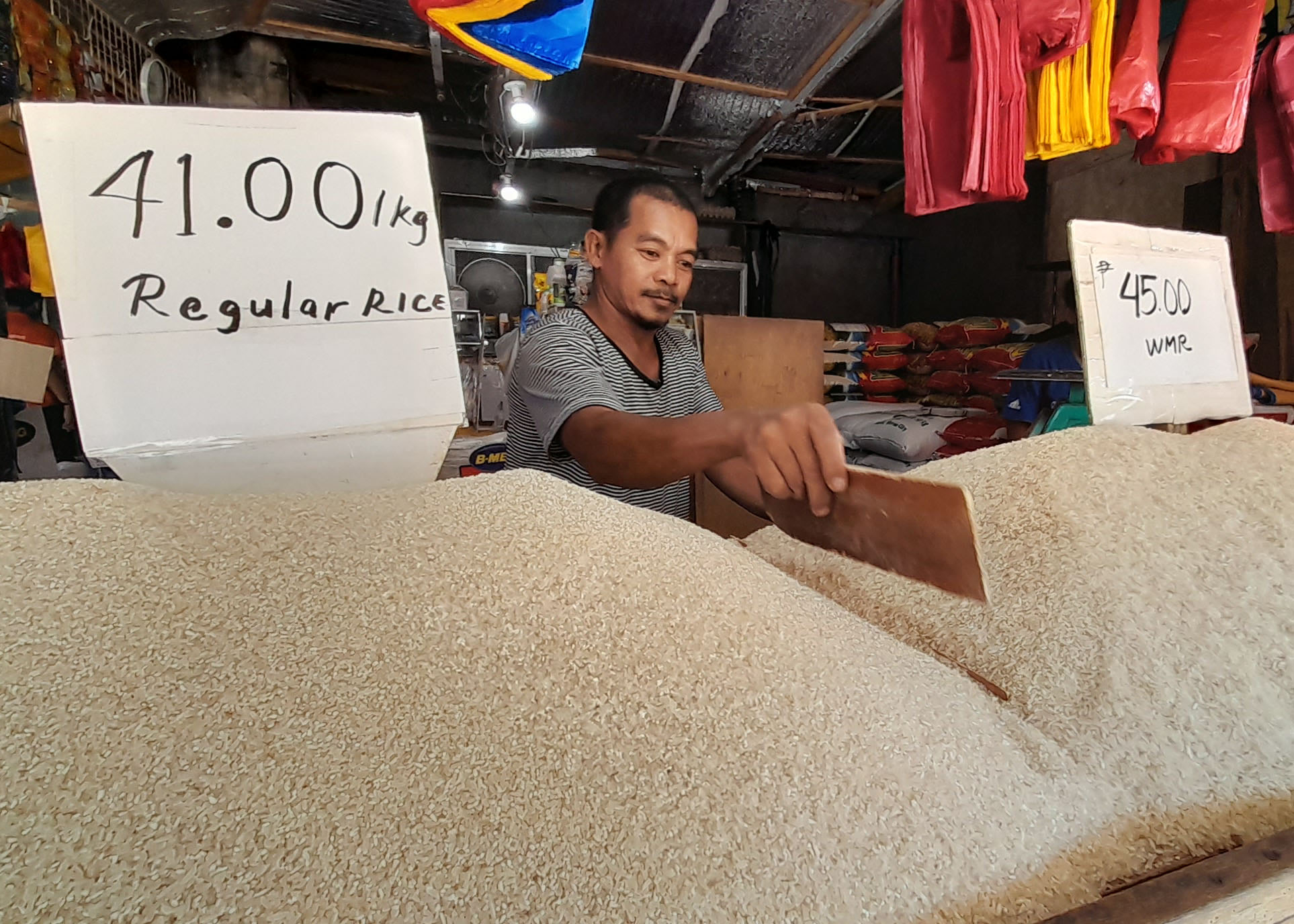THE MAGSASAKA at Siyentipiko para sa Pag-unlad ng Agrikultura (Masipag) Mindanao calls to junk Rice Liberalization Law, saying it only benefited cartels at the expense of Filipino farmers.
Masipag convened on Friday, February 14 in line with the sixth year of the Rice Liberalization Law, which was institutionalized in February 2019.
Republic Act 11203 mandates liberalizing the importation, exportation, and trading of rice and lifted for the quantitative import restriction.
During the “Bigas lang ang Nagmamahal” forum on Friday, Alfie Pulumbarit, Masipag national coordinator, said farmers and consumers have suffered long enough from the failure of the law.
“For six years, this law has devastated local rice production, flooded the country with imports, and left farmers at the mercy of rice cartels and traders,” Pulumbarit stressed.
Under rice liberalization, the country has become the world’s largest rice importer, with 4.68 million metric tons imported in 2024, and 5.22 million metric tons projected for 2025, according to the United States Department of Agriculture.
He slammed the Department of Agriculture (DA) declaration of a food security emergency on rice which is yet another attempt to cover up the failure of the real crisis in the country’s rice industry.
The DA’s declaration on Feb. 3 mandates the National Food Authority (NFA) to release 150,000 metric tons of its buffer stock and sell them to local government units and the Kadiwa program at P33 per kilo.
This amount, according to Masipag, “barely makes a dent in market prices and will not be enough to sustain consumers in the long run.”
Masipag also cited that NFA report as of Jan. 15, it only had 708,217 bags of rice in its warehouses, while the rest of the 7,991,522 bags remained unprocessed palay, which is far from what the government claims.
“The government says it wants to lower rice prices, but it refuses to confront the real issue -the control of rice supply, pricing by private traders and cartels, and the continuous shrinking of our agricultural lands and rampant use of unsustainable practices,” Pulumbarit continued.
To note, the controversy in February-March 2024, where the NFA was caught selling rice to private traders at P25 per kilo, highlighted the “persistent corruption” within the agency.
Not to mention with the midterm elections approaching, MASIPAG also warns that the Food Security Emergency could be used as a “political tool” to benefit those in power, which can be weaponized for patronage politics.
“The solution to the rice crisis is not more imports or subsidies that will only temporarily lower prices,” Pulumbarit emphasized.
Ignacio Sulit, an organic farmer from South Cotabato, said instead of prioritizing local farmers, the Rice Tariffication Law has made the country largely dependent on the global rice market, which leaves the farmers vulnerable to price fluctuation and supply disruptions.
“Ang mahitabo sa mag-uuma bar down jud sya, ang iyang resources ug moabot na nga i-prenda na ang yuta, tungod sa kawad-on, kay di na sya ka-recover,” Sulit stressed.
Sulit said if rice importation continues, given the processed rice will be sold at P29 per kilo, farmers will have to sell the raw palay at P16 per kilo at most to traders.
Bernard Cael, an organic farmer from South Cotabato since 2018, said that the real solution should be real support for farmer-led agroecology, as it ensures sustainable production, fair prices for farmers, and accessible food for consumers.
“Tudloan ang mga uma sa pinaka appropriate na farming system, which is natural lang, kami nga naga-organic, nihatag sya og maayong produkto,” he stressed.
Cael recalled that before the law was institutionalized, farmers could sell their palay at P23-P24 per kilo, but after the RTL, it is bought at a farmgate price as low as P12-P14 per kilo, leaving the farmer only breakeven.



